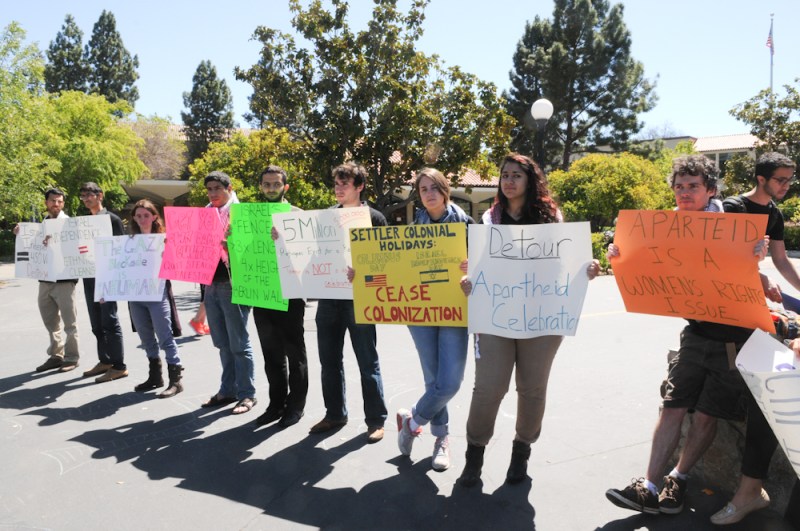Stanford STATIC is looking to expand its already-growing reach on campus with the launch of an online activist newsfeed and the release of two new hard-copy published journals this year.
Both a forum for people to discuss issues and a place for others to learn about progressive stories, the STATIC activist blog connects those who are passionate about social issues. It serves as a resource site for students looking for events, opinions or more general information surrounding a particular cause.
“We have to work together to figure out how to reduce injustice,” said Jovel Queirolo ’14, co-founder of STATIC.
During her freshman year, Queirolo said she witnessed cases of injustice at Stanford, pinpointing military organizations on campus that discriminated against students identifying as transgender. Queirolo felt a strong need to create a publication that provided a platform for students to speak out against such injustices.
Queirolo and Holly Fetter ’13 M.A. ’14 founded STATIC in the summer of 2011 after attending the Campus Progress National Conference, an event held by the Generation Progress nonprofit organization, which supports progressive journalism as a means to tackle current social issues. At the conference, Amy Goodman, a journalist and activist who promotes the use of progressive solutions to social challenges, inspired them to form their own activist blog on campus.
At its inception in September 2011, STATIC did not receive funding, and Fetter and Queirolo were the only two staff members working on the blog. The following year, however, STATIC merged with another similar campus publication called The Stanford Progressive, which allowed the two co-founders to receive funding from the University to develop the blog further. Despite the merge, STATIC kept its name.
Since then, STATIC has grown rapidly and effectively. Three hundred pieces of writing have been published on the blog, and a hard-copy journal was printed during the 2012-13 academic year. Two additional journals are planned for release this year, thanks to a recent grant from the Generation Progress organization.
The upcoming journals are expected to focus on compiling many of the publication’s more controversial and popular pieces, with the intention to demonstrate the close relationship between political and personal identities.
“Something that STATIC has really tried to do is to make political work and political conversation very personal,” Queirolo said.
The blog showcases a variety of subjects, perspectives and formats. Contributors have talked about gay imperialism, politics, pop culture, art, feminism, inequality, poetry and personal stories that cover a breadth of topics. Articles are published at least once a week with little restriction regarding length or topic, and people can submit pieces of art, poems, responses to articles, their own articles, songs, photos or even essays from class.
Sammie Wills ’16 joined STATIC during her freshman year when she felt the need to become part of a community that cared about the same issues that she did, including cultural appropriation, LGBTQ rights and intersections of identity issues.
“STATIC is really a place for anyone who likes to write about progressive or activist topics,” Wills said. “We just want to highlight the voices of people here in our community.”
As Wills describes, STATIC serves to empower the causes of today as well as to memorialize those of the past.
“STATIC is turning into an archive of history,” she said.
Currently, there are 15 staff members who are committed to working for STATIC and providing suggestions to submitters.
“You do not have to be an expert to be in STATIC,” Wills said. “I understand that criticism and feedback might be scary for some people; that’s why we have a team of staff members to help support members to getting their work to the community.”
She added that STATIC will continue to have a presence offline in the Stanford community as well, by organizing events for activists.
“We hold events to unite the activists on campus, so that we can build cross-community bridges and work towards the struggle that we all share,” Wills said.
